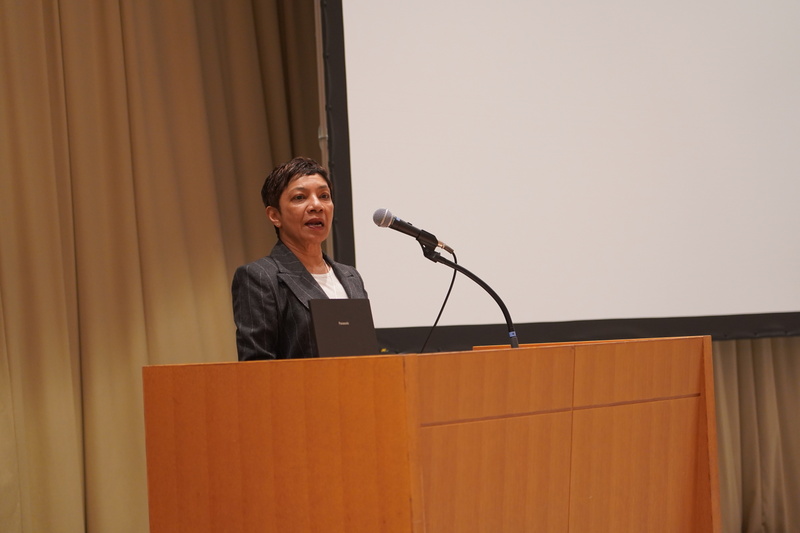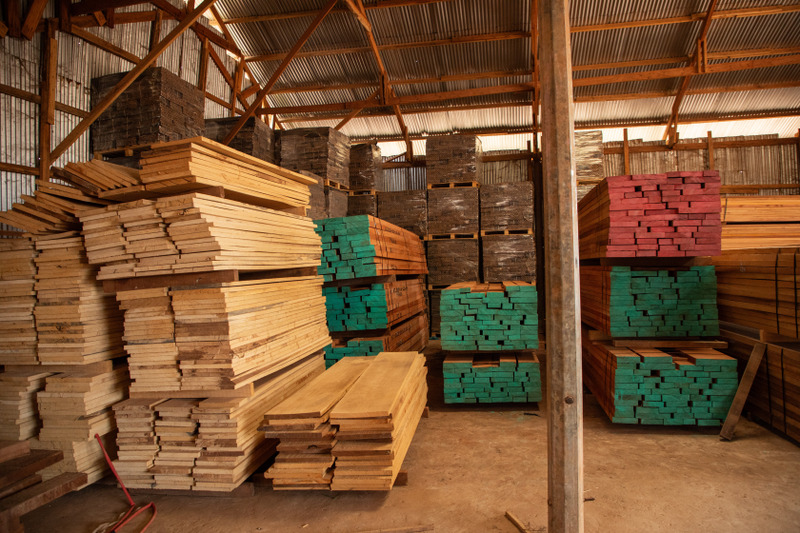On World Wood Day, ITTO sees sustainable timber driving the bioeconomy transition
20 March 2025, Sendai

Wood panels in one of ITTO-BMEL teak project sites in Cambodia. Photo: Alfredo Ruzol
Pick any global nature-based sustainability challenge and, chances are, you will find that wood is part of the answer.
Forests are crucial sequesters, stores, and sinks for climate-heating carbon. Forests are also key reservoirs and refuges for biodiversity. They provide water, food, livelihoods, and protection from disasters for many millions of people, and their wood is an essential renewable material for the transition to a circular bioeconomy.
World Wood Day, marked every year on 21 March, is an occasion to honour the centrality of forests and wood in securing a sustainable future for humanity. For ITTO and its partners, that means strengthening its commitment to the mission of fostering the sustainable management of tropical forests and the legal and sustainable trade of tropical forest products.

ITTO Executive Director Sheam Satkuru reinforced that message ahead of the 2025 World Wood Day Symposium being held in conjunction with the International Symposium on Wood Science and Technology (ISWST), in Sendai, Japan.
In a guest address at the ISWST opening ceremony on 18 March, Ms Satkuru stressed the power of a sustainably managed forestry sector to drive economic growth, conserve bio-diversity, provide sustainable employment, and support the livelihoods of millions of people, particularly in tropical forest regions.
Moreover, wood’s well-acknowledged properties of being the most environmentally friendly and renewable natural substitute for carbon- and energy-intensive alternatives such as concrete, steel, and plastic are yet to be optimized.
“The transition to a truly sustainable circular bioeconomy will not happen overnight,” Ms Satkuru said. “But by enhancing closer collaboration between science, industry, and policy, we can accelerate the shift toward responsible and sustainable wood use and ensure that forests continue to thrive.”
While decades of research and ground-based evidence have demonstrated the benefits of sustainable forest management and innovative wood-based solutions, the findings too often fail to translate into real-world applications.
Sustainable timber production and utilization are also hampered by barriers including weak governance, lack of investments, illegal logging, deforestation, and a lack of consumer awareness of the environmental and socio-economic benefits of legally and sustainably sourced wood.
To overcome the barriers, Ms Satkuru called for stronger collaboration among scientists, researchers, policymakers, and industry leaders so that scientific breakthroughs in areas such as engineered wood products, sustainable harvesting/utilization techniques, and circular bioeconomy strategies can be integrated into national and international policy frameworks that encourage responsible forest management and use.
In parallel, significant investments are needed in select developing markets for sustainable wood products, ensuring that these materials are accessible, cost-competitive, and widely utilized across various industries.

Equally important is the need for greater capacity-building and knowledge-sharing initiatives that empower forest communities, government agencies, and businesses with the skills and resources needed to implement sustainable practices effectively.
Ms Satkuru further stated that the ITTO and its partners will continue working to strengthen the uptake of sustainable timber value chains and ensure that forests remain a viable socio-economic and environmental resource for future generations.
Effective measures such as the ITTO Legal and Sustainable Supply Chains Programme and related initiatives such as the Global Legal and Sustainable Timber Forum are already enhancing networking, collaboration, and business interactions among timber industry stakeholders. These initiatives support the utilization of legal and sustainable timber supply chains and encourage the use and trade of responsibly sourced timber products. Both activities contribute to the Collaborative Partnership on Forests (CPF) Joint Initiative, ‘Sustainable Wood for a Sustainable World (SW4SW).
ITTO’s Sustainable Wood Use project is focused on promoting responsible wood consumption nationally and regionally by reviewing policies, regulations, and industry practices, aimed at identifying and encouraging best practices and recommending policy changes to overcome barriers such as changing consumer preferences, limited product choices, and competition from cheap substitutes. Such efforts fully support the sustainable use of forests and the use of sustainably produced wood.



